Held at gunpoint by gangsters and beaten up by police: A refugee's harrowing story of his danger-filled journey to Europe
'I felt like I was in the jungle. No one was there to protect us'
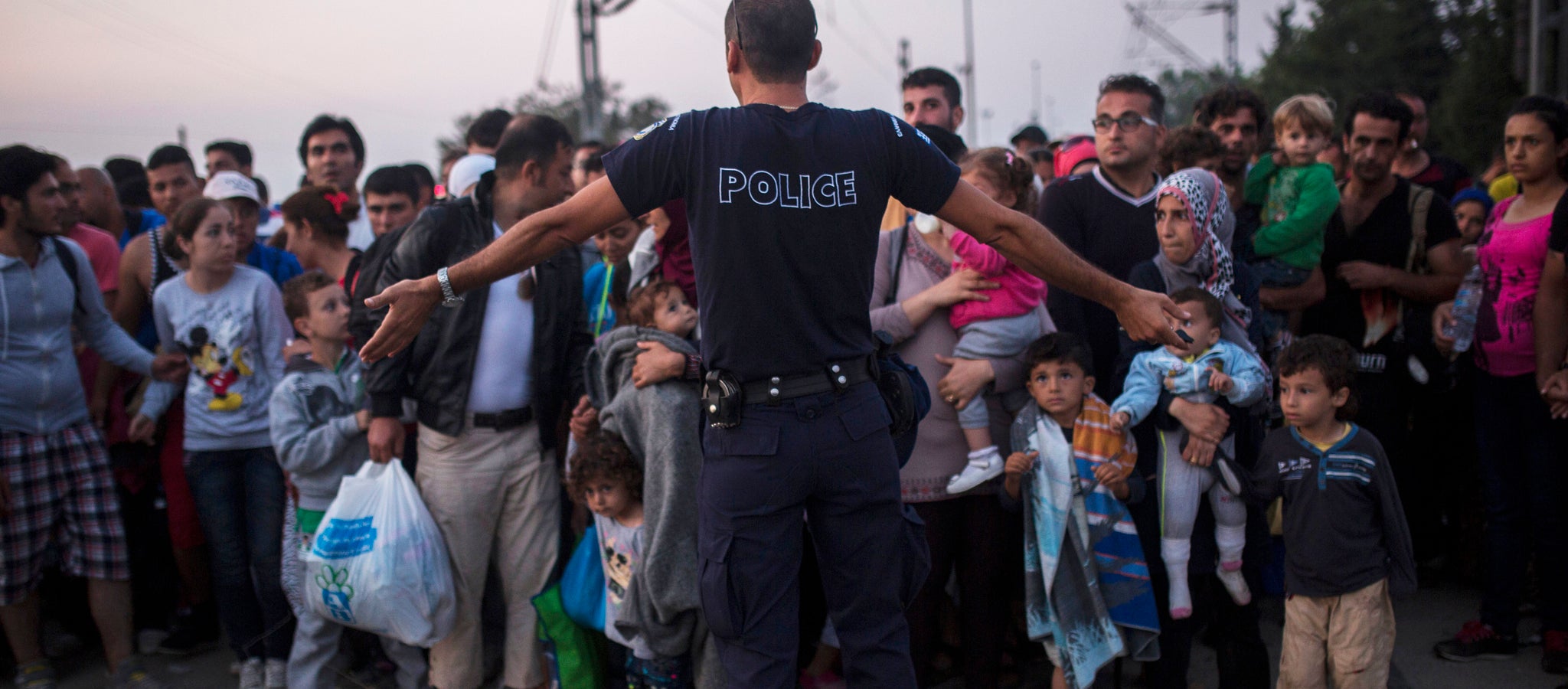
Your support helps us to tell the story
From reproductive rights to climate change to Big Tech, The Independent is on the ground when the story is developing. Whether it's investigating the financials of Elon Musk's pro-Trump PAC or producing our latest documentary, 'The A Word', which shines a light on the American women fighting for reproductive rights, we know how important it is to parse out the facts from the messaging.
At such a critical moment in US history, we need reporters on the ground. Your donation allows us to keep sending journalists to speak to both sides of the story.
The Independent is trusted by Americans across the entire political spectrum. And unlike many other quality news outlets, we choose not to lock Americans out of our reporting and analysis with paywalls. We believe quality journalism should be available to everyone, paid for by those who can afford it.
Your support makes all the difference.Threatened at gunpoint by gangsters, beaten by police and forced to arm himself with knives, a Syrian refugee has revealed the harrowing story of his journey to Europe.
The 34-year-old man – who did not want to be named – reached safety on the Greek island of Lesbos after travelling for months from his war-torn homeland.
Now living in Hamburg following an arduous 11-day passage through Macedonia, Serbia, Hungary, Austria and southern Germany, the man told aid workers at the International Rescue Committee (IRC) UK he felt “like a hero”.
Describing the moment he and eight friends from Aleppo reached Munich railway station, he said it was then “we heard the German national anthem. We were very, very, very happy”.
Despite attacks against refugee shelters intensifying in Germany over recent weeks, particularly at the hands of far-right groups in the east, the man said he found Germany to be safe, respectful and welcoming.
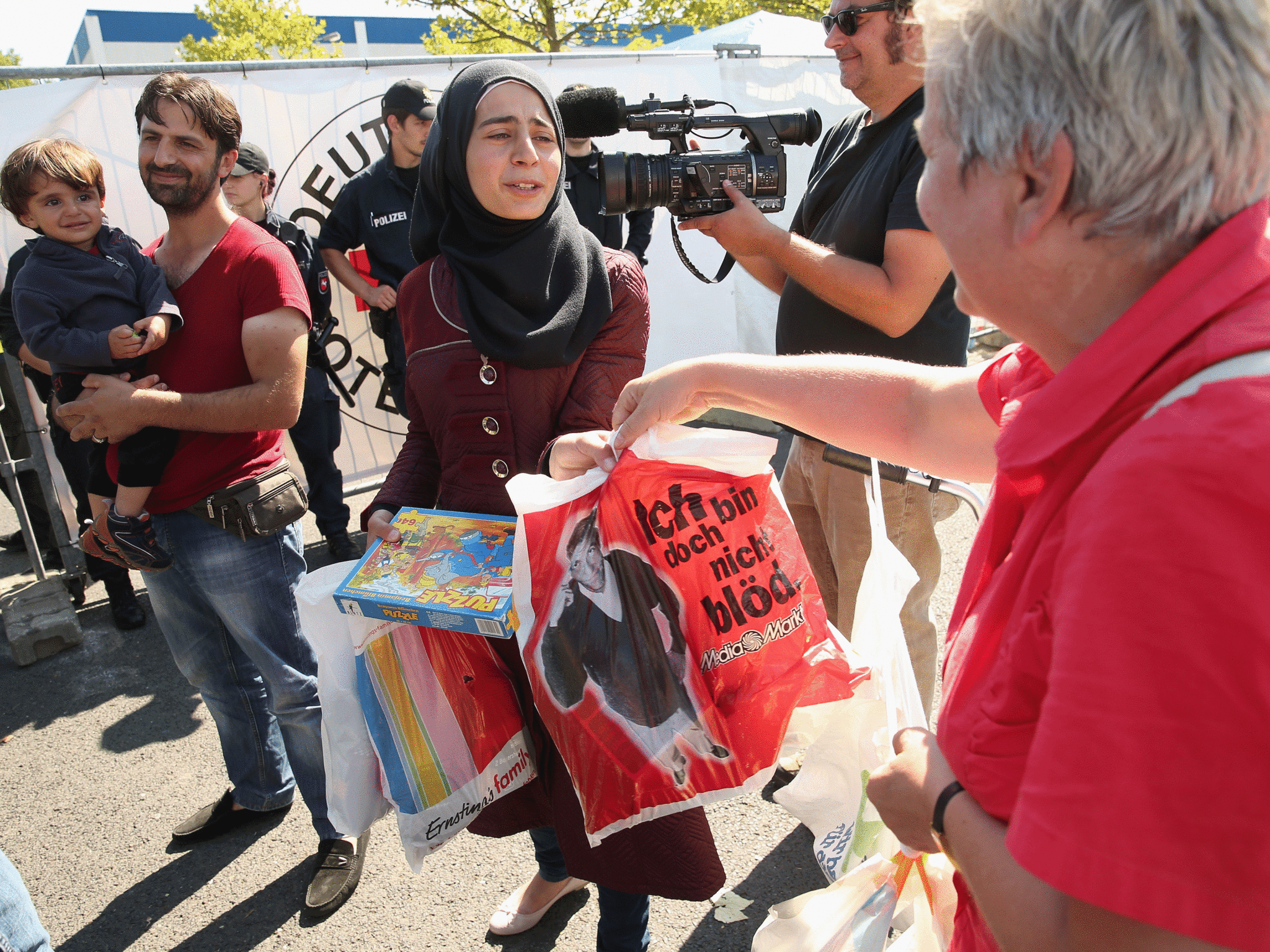
But he did not hold the same sentiment for Hungary, where he claimed he was beaten by police in a prison used as a holding centre for refugees.
“F**k Hungary and f**k all the people in Hungary. They are so bad,” he said.
Recounting his journey through Serbia, he added: “I felt like I was in the jungle. Where was the police? Where was the government? No one was there to protect us,” he said.
“It had been such [a] hard journey. I feel like a hero to be honest.”
Here is the man’s story in his own words:
We only stayed for one day in Mytilini and the next day we took the ferry to Athens, which took about 14 hours.
We were very comfortable in Athens. The people were very nice, very friendly. They help you. They have no problem with refugees. Wherever you walk in Athens you can see Syrian refugees.
We stayed for three days in a hotel, which cost €10 a night per person. A lot of refugees were there, from Iraq and Syria especially.
We thought we already had our documents to travel freely in Greece, but we needed to go to a police station first to get the official document, and for that we would have to wait up to a week.
We couldn’t afford to stay in Athens for a week, so I told my friends ‘let’s just try and get the train to the border without the document’. This worked and we were able to get the train to Thessaloniki and from there to the border. I travelled with eight friends from Aleppo.
We had to walk across the border. We opened our mobiles and used the GPS to find the best road to reach the nearest train station on the other side of the border. We started to walk about two o’clock at night and in total we walked for four hours through a forest.
Before we set off, we all bought very long, very strong knives because we were told we might come across people with guns who might try and rob us.
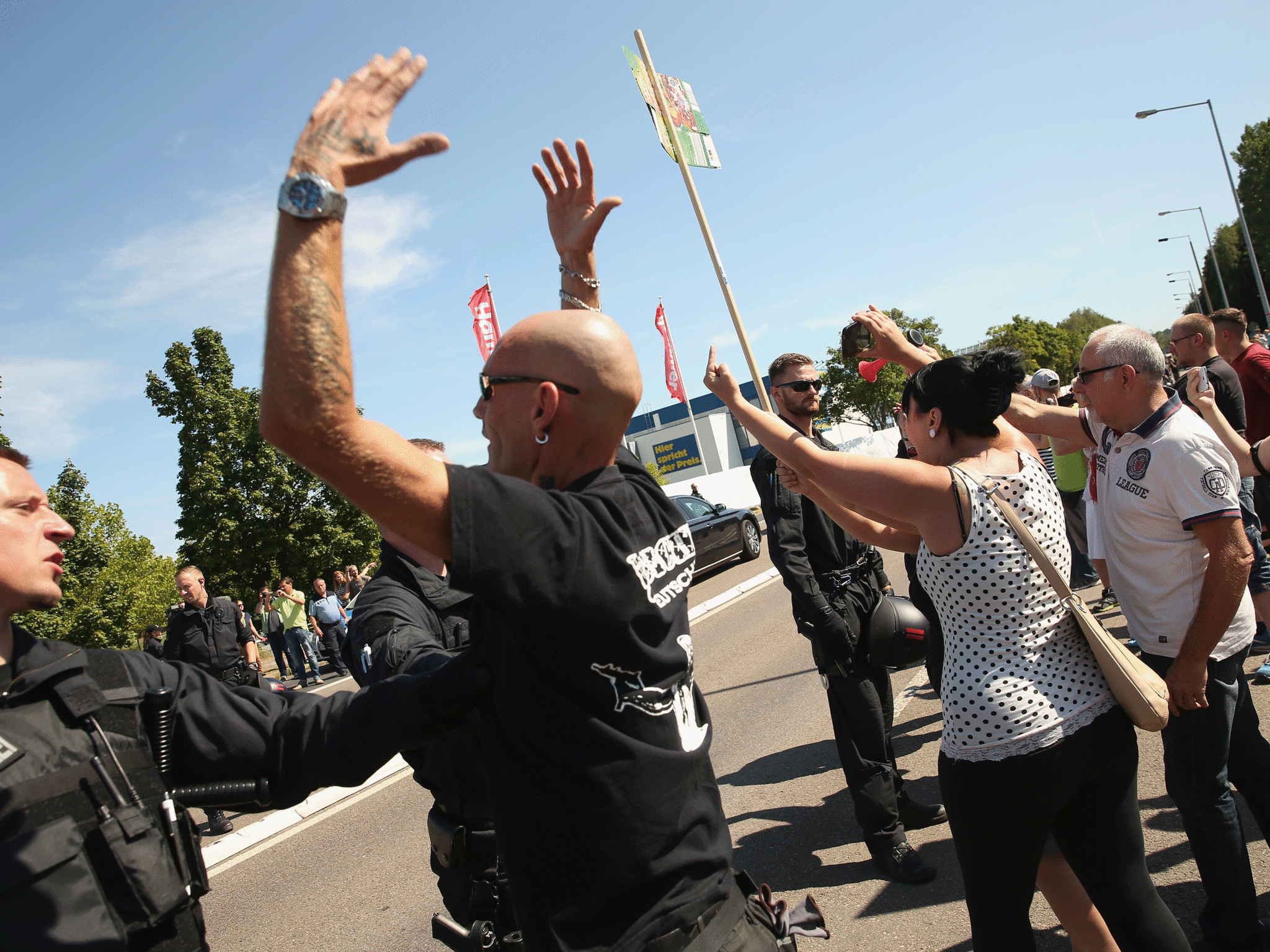
After we crossed the border, we… [saw] soldiers from the Macedonian army. An officer said ‘don’t worry, don’t be afraid, we won’t hurt you. Welcome to Macedonia. We know you are no problem for us and just want to go to Serbia’.
He was a good man and showed us the way to the station. But he also said ‘If anyone tries to rob, you then you have the right to defend yourselves and kill them’.
I felt like I was in a movie. Thank God we didn’t come across any criminals in the forest, because I don’t know what I would have done.
When we got to the station we decided to take a taxi as it was only €25 each to get to the Serbian border. It only took two hours and 15 minutes.
By the time we reached Serbia it was seven in the morning and [we] walked alongside the train tracks for five hours before we reached the nearest town. There were thousands of refugees there. Many had been waiting for three or four days. There weren’t any hotels and there wasn’t a camp, so a lot of people were sleeping on the floor, at least a thousand.
I told my friends we’d be crazy to wait here for days and days. There were no hotels, no restaurants, no toilets, no food, no water. There was just a couple of small supermarkets, which were really expensive because they knew we were hungry, thirsty and desperate. They would charge €3 for a small bottle of water. The Serbians just want to make money off the Syrians.
So I spoke with a Serbian man and asked him if he could drive all 16 of us to the next town. He wanted €50 for each car. He said not to worry about the police, that they would use some of the money we paid him to give to them. And this is what he did when we came across them. He dropped us off at the next city and then we took the bus to Belgrade.
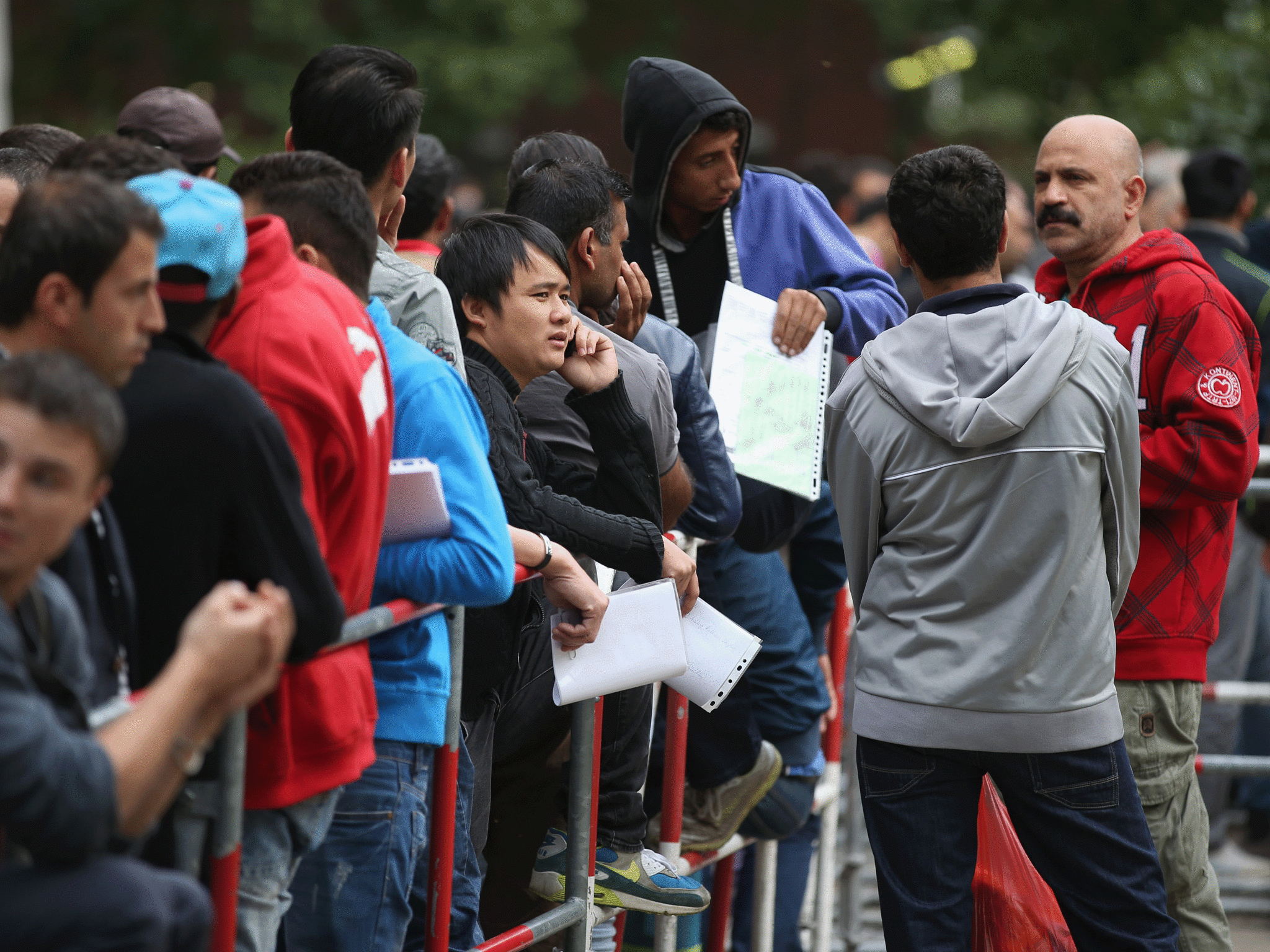
When we reached Belgrade it was 12 o’clock at night. My friend in Germany here gave us the name of the hotel where they do not ask to see your travel documents. So we asked a taxi driver to arrange taxis for all of us there. So we went with him but after about 20 minutes he stopped in the middle of street next to a small house that didn’t look like a hotel at all.
I said this wasn’t the right hotel and he said ‘no, go to this hotel!’ and he became angry. So we decided to check out the house, and asked him what the price was for the journey. He said it would cost €50 for each taxi for this little journey. Wow! €50? For 20 minutes?
I told him we were able to take a taxi across Macedonia for that price. But he became angry and showed us his gun. He said if we didn’t pay him he would kill us all here and leave us on the street. He had a gun, so what could we do? So we paid him.
We were so afraid because we were left alone on the street. We were worried that we might come across other mafia and maybe they might steal our money, phones, and passports. We managed to slowly get four taxis back to the bus station, this time only charging €10 per car.
We got to the bus station and waited with other Syrians. We told some people what happened to us and they said it was our fault to take a taxi at night in Belgrade, because they are all armed and are all in the mafia.
There were a lot of women and children sleeping in the garden and they were all afraid. They were worried they would be robbed by groups of men if they left the garden. So all the Syrians stayed inside the garden all night.
It was very bad, I felt like I was in the jungle. Where was the police? Where was the government? No one was there to protect us.
When we reached Kanjiza at the Hungarian border we saw a lot of people. They are all preparing by recharging their mobile phones, looking at their GPS’. Everyone was eating, drinking and changing their clothes.
When it is 10 o’clock at night people started walking to the border.
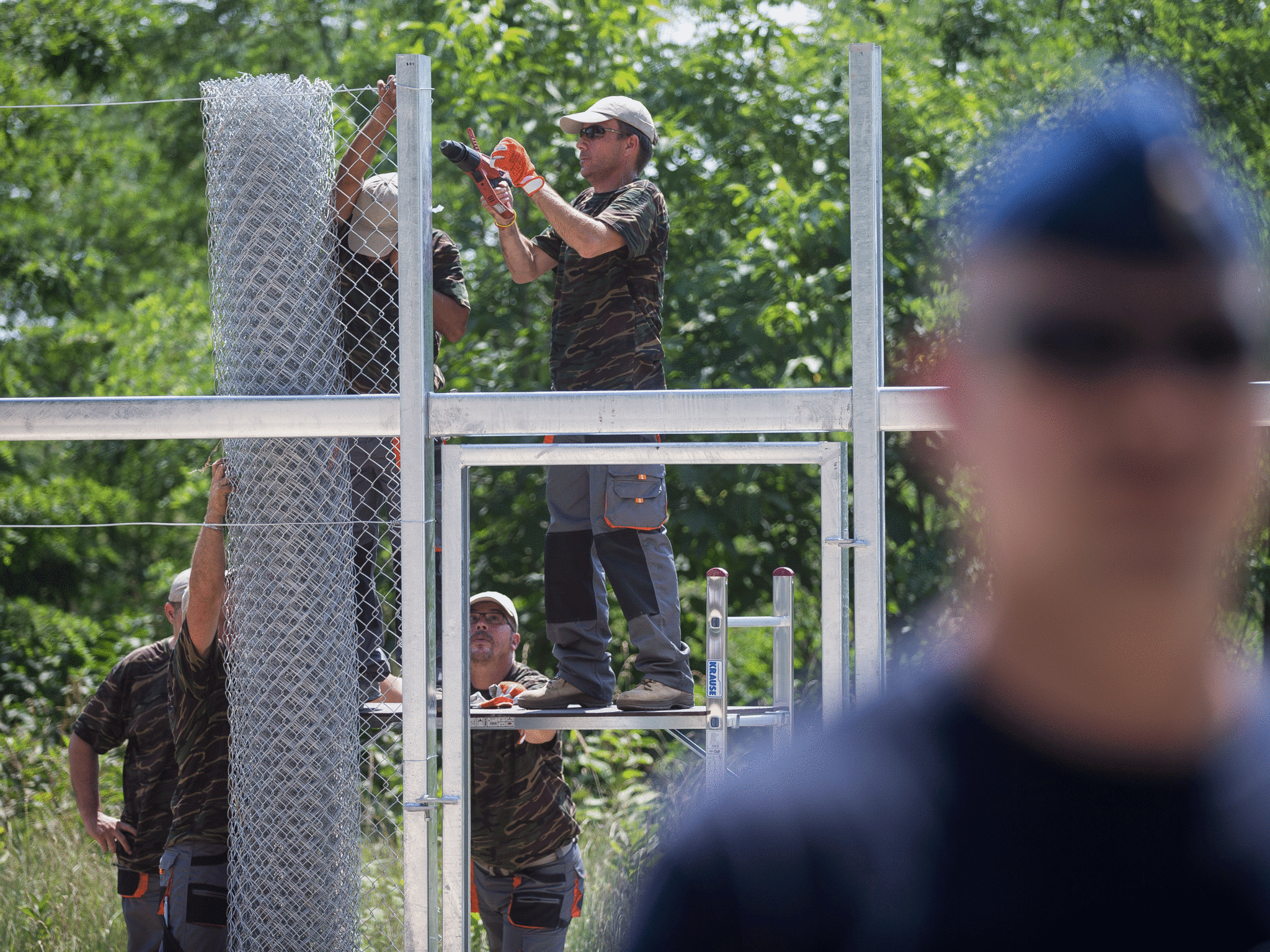
We heard that the police were arresting people trying to cross so, to try and avoid them, we took a taxi to another village and began walking from there. We walked for around seven hours before we came across a village in Hungary.
We put on new clothes and threw our bags away, because we… [thought] if people see you with a bag they know you are a refugee.
But this didn’t help. The police spotted us and arrested all of us. I’m sorry to say the police were very bad. They kept shouting and I didn’t have a drink for 12 hours. One officer said ‘f**k you, f**k refugees’.
They took us to a city called Győr around 100km from Austrian border and put us in jail. Not a camp, not a hotel, not a home but a jail! There were a lot of refugees in that jail, including women and small children. With around 10 people in each room.
They put us in a very small room and said they needed our fingerprints otherwise they would hit us and put us in jail for six months and then send us back to Serbia. I said, ‘why do you want to hit us? We want to leave your country and go to Germany as soon as possible’.
We each got asked if we wanted to claim asylum, and each of us said ‘no, we don’t want to give our fingerprint, we want to go to Germany’.
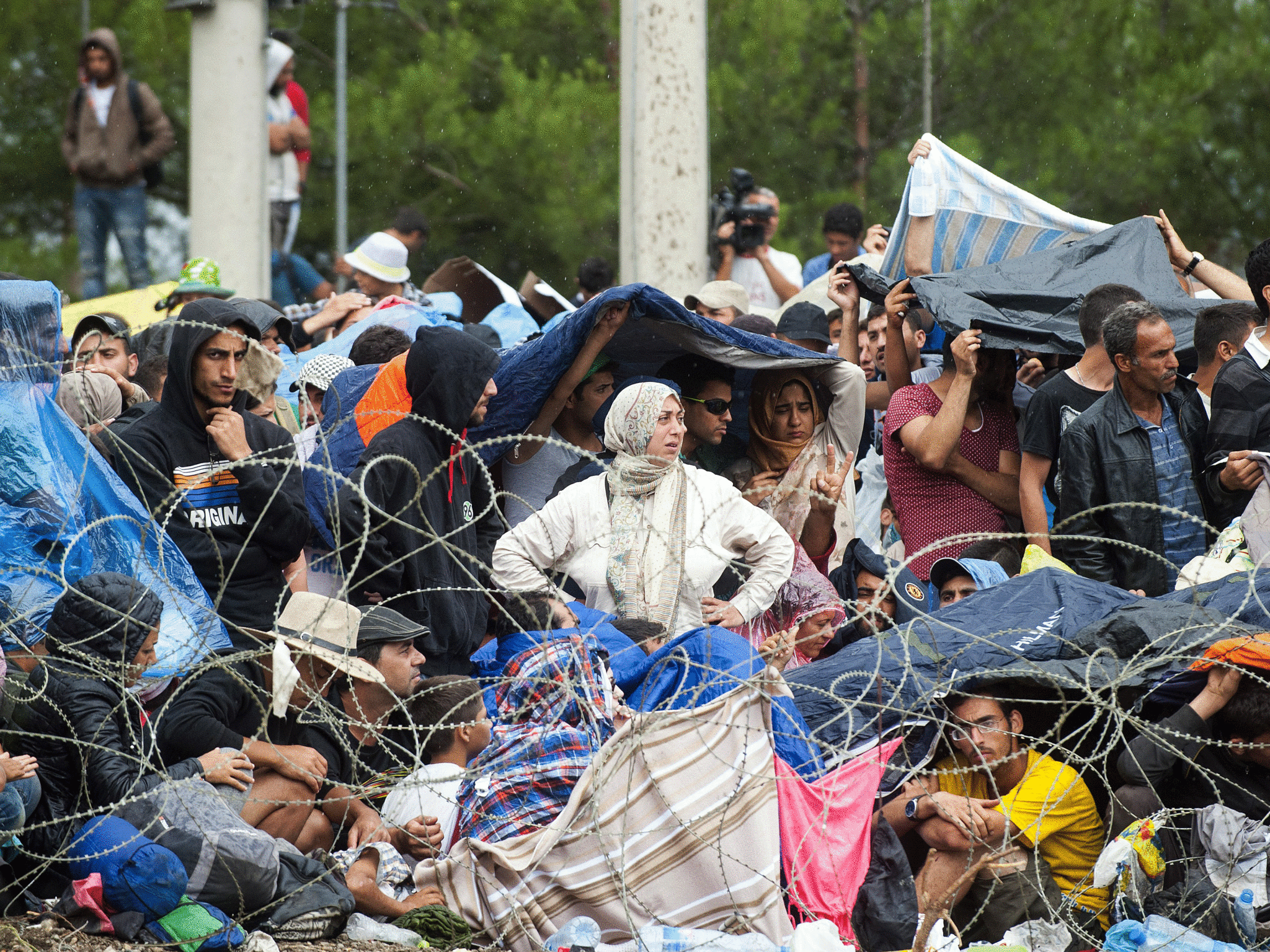
The officer became very angry. He stood in front of me and he hit me in the face twice. I just wanted him to stop so I said, ‘OK I will give you the fingerprint’. Then they let me leave the jail. F**k Hungary and f**k all the people in Hungary. They are so bad.
I managed to speak with a friend in Germany who arranged for me to talk with someone in Hungary who was willing to help us cross the border into Austria and all the way to [the] German border for €450 a person.
We started about two o’clock in the night and we reached this small village inside Austria about four hours later. We then got a train all the way to Munich which only took five hours.
When we were on the train [we] shaved and did our hair so we didn’t look like refugees. We put on good clothes and put on aftershave, and our English was good so no one suspected we were refugees from Syria.
It was when we were getting our ticket checked that we heard the German national anthem. We were very, very, very happy.
Now I am in Germany, I am safe. I am very comfortable in Hamburg. I am very happy. The people are very nice. This is a respectful country and they are a respectful people. Here you are safe. No one hurts you in the street. No one disturbs you. Everyone here is nice.
Everything here on time, it is a very big thing here: you must be on time. It is unbelievable. If anyone says he will see you at eight o’clock he will see you at eight o’clock.
I also have the internet 24 hours so any minute I can talk to my family. My mother cried when I spoke with her - she couldn’t believe I had made it. It had been such [a] hard journey. I feel like a hero to be honest.
Join our commenting forum
Join thought-provoking conversations, follow other Independent readers and see their replies
Comments